The U.S. Chamber of Commerce Institute for Legal Reform (ILR) is a leading voice for legal reform and civil justice issues facing the American business community. In 2023, ILR published a diverse range of research papers and briefs examining the most pressing challenges and opportunities facing our legal system today.
By spotlighting real-world examples, we empower policymakers and the American public to understand the significance of these issues and drive meaningful change. From tort costs to personal jurisdiction, from ADA litigation abuse to nonattorney investment in law firms, ILR’s research illuminates the path toward a fairer legal system for businesses and consumers. Here is a look at ILR’s research in 2023.
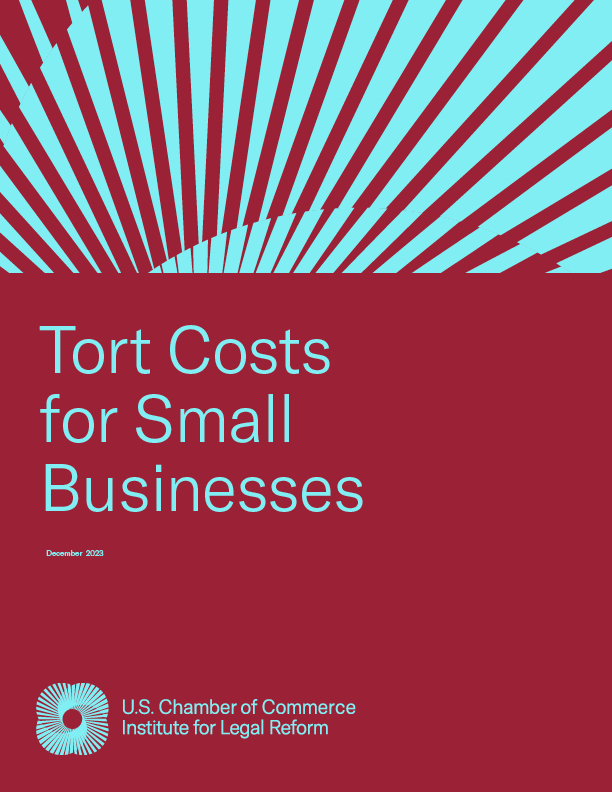
Tort Costs for Small Businesses
This report analyzes the economic impact of tort litigation on small businesses in the U.S., finding that they bear a disproportionate share of the burden. The report estimates that businesses making $10 million or less annually account for 20 percent of commercial revenues, but nearly 50 percent of the commercial tort costs, amounting to $160 billion in 2021. And the smaller the business, the bigger the burden. The smallest businesses (those making $1 million or less) face seven times the tort costs of the largest (those making $50 million or more) in proportion to revenue.
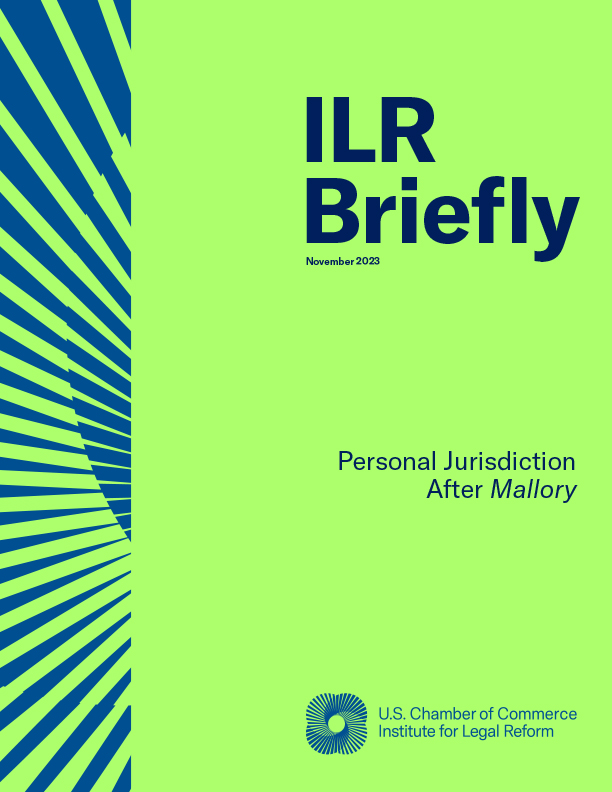
ILR Briefly: Personal Jurisdiction After Mallory
This edition of ILR Briefly explores the implications of the U.S. Supreme Court’s decision in Mallory v. Norfolk Southern Railway Co.[EJ1] , which upheld Pennsylvania’s consent-by-registration statute that allows state courts to exercise general personal jurisdiction over out-of-state corporations that register to do business in the state.
The Briefly warns that Pennsylvania’s statute, and any similar statute adopted in other states, could lead to abusive forum shopping, overburdened court systems, increased litigation costs, and reduced choices for consumers and businesses. We conclude the research by urging state legislatures and courts to reject invitations by the plaintiffs’ bar to adopt or expand consent-by-registration statutes.
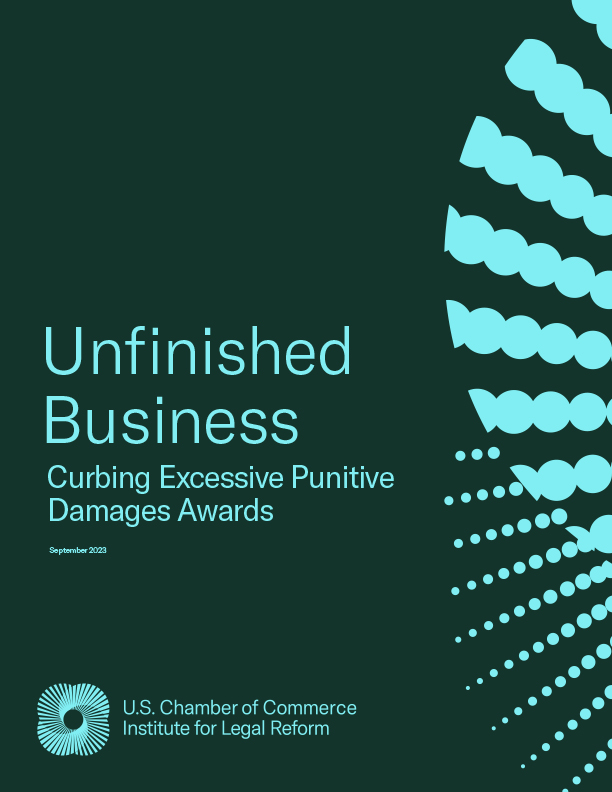
Unfinished Business: Curbing Excessive Punitive Damages Awards
Once rare and relatively modest in amount, punitive damages awards are now an outsized and common feature in America’s civil litigation landscape. Over the last half-century, punitive damages awards have become far more frequent and far larger, outstripping inflation and their original purpose of punishing and deterring repugnant conduct.
ILR’s research explores the history of punitive damages awards, documents their upward trajectory since the 1970s, examines why excessive awards persist despite efforts to mitigate them, and offers solutions for legislators and courts to prevent excessive awards in the first place and reduce them when they occur. The reforms we recommend are intended to make the institution of punitive damages in the United States more fair, more predictable, and less arbitrary.
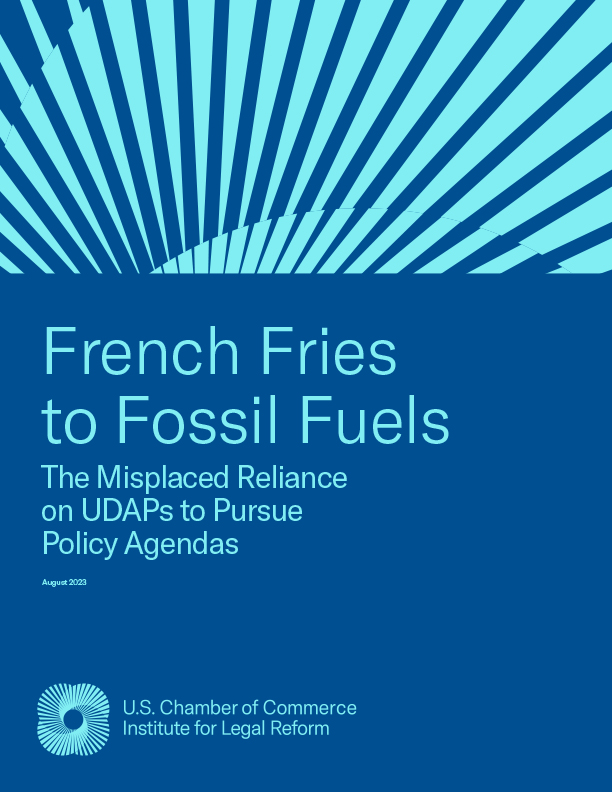
French Fries to Fossil Fuels: The Misplaced Reliance on UDAPs to Pursue Policy Agendas
Unfair and Deceptive Acts and Practices laws (UDAPs) are among the most important legal tools states have when protecting their consumers. Unfortunately, some state attorneys general (AGs) and private litigants are increasingly harnessing UDAPs to pursue policy agendas. In so doing, these actors chill economic activity, offend due process rights, and ultimately divert resources away from the essential purpose of UDAP laws—protecting consumers.
ILR’s research dives into the history and function of UDAPs, and documents how in recent years state AGs and private litigants have used UDAPs to regulate business activities, pursue policy agendas, and/or punish politically disfavored activity—even if it is otherwise lawful. The paper concludes by proposing a set of primarily state legislative solutions to curb this trend.
Roadblock: The Trucking Litigation Problem and How to Fix It
This research exposes rising trends in litigation against the trucking industry, which have resulted in skyrocketing insurance costs, increased settlement demands, and reduced safety incentives. The paper identifies the main drivers of this litigation explosion, such as the use of the “reptile theory” to inflame juries, the exploitation of federal regulations to create liability, and the manipulation of medical bills to inflate damages. The research also recommends several reforms to level the playing field and protect the trucking industry from abusive lawsuits, such as adopting the Daubert standard for expert testimony, limiting the admission of collateral source evidence, and enforcing arbitration agreements.
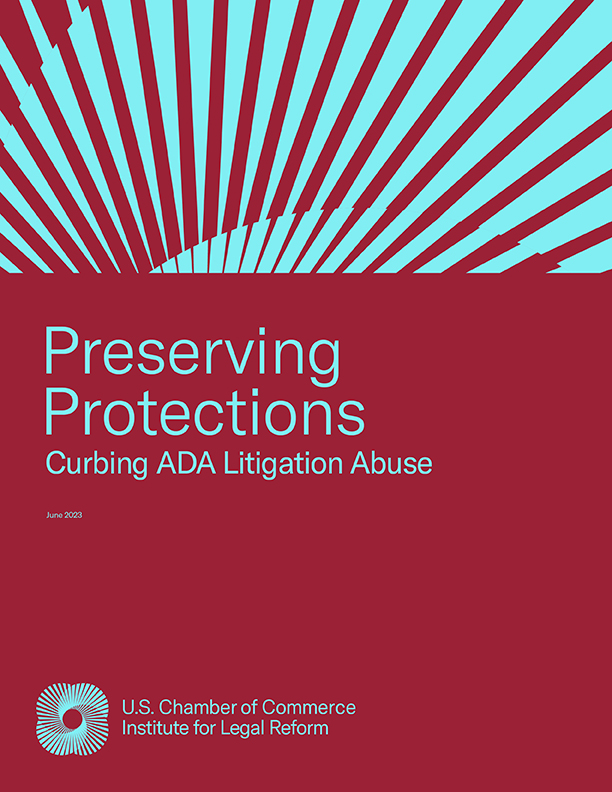
Preserving Protections: Curbing ADA Litigation Abuse
A small number of plaintiffs’ firms are twisting the laudable goals of the Americans with Disabilities Act (ADA) to file thousands of boilerplate claims, many against small businesses, with the goal of extracting quick settlements.
ILR’s research shows that between January 2009 and April 2023, a group of 18 plaintiffs’ firms filed nearly 45,000 ADA cases—44 percent of total ADA filings in that time period. Similarly, between 2009 and 2022, more than 80 percent of ADA lawsuits were brought by “high-volume” plaintiffs—those who file at least eight cases a year. After documenting this phenomenon, ILR’s research recommends a series of complementary state and federal reforms to ensure that ADA litigation serves its original goal: protecting equal access, not fueling plaintiffs’ lawyer profits.
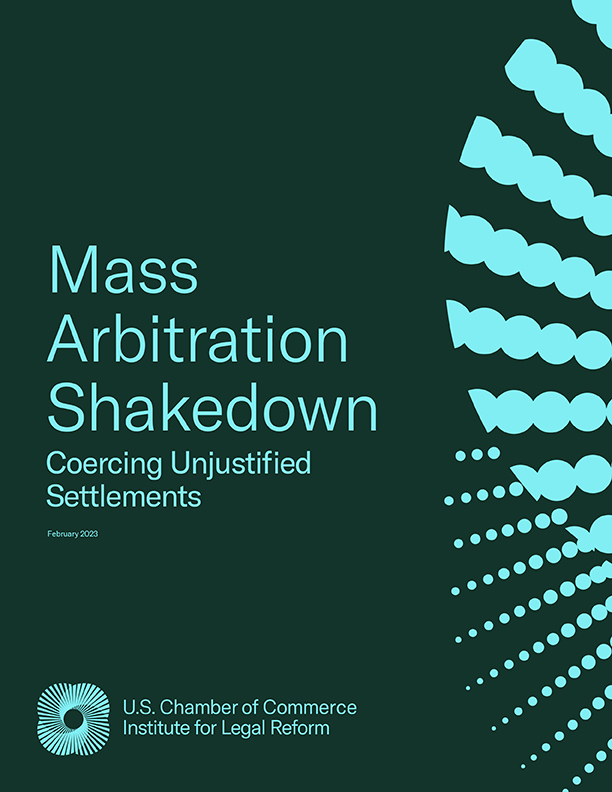
Mass Arbitration Shakedown: Coercing Unjustified Settlements
This research examines a new tactic by plaintiffs’ lawyers to undermine arbitration by filing thousands of identical claims and demanding huge fees from businesses. Mass arbitrations are designed to pressure businesses to settle meritless or frivolous claims, or abandon arbitration altogether, by exploiting the arbitration fee structures and rules. Courts and arbitration providers are only just beginning to address the problem of mass arbitrations, which have left businesses vulnerable to unrealistic demands and unfair leverage. The report proposes several solutions, such as applying a bellwether process, changing the arbitration rules and fees, and investigating the ethical violations of mass arbitration plaintiffs’ lawyers. While major arbitration providers have recently adopted some of these changes, there is still much to be done.
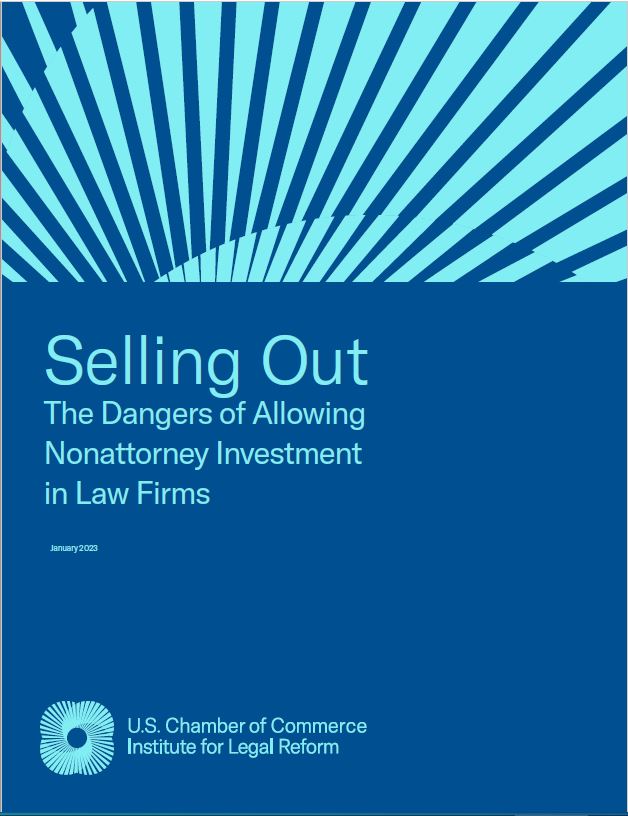
Selling Out: The Dangers of Allowing Nonattorney Investment in Law Firms
This report reveals efforts in several states to deteriorate or completely remove Rule 5.4, which prohibits nonlawyers from owning law firms or splitting fees with attorneys and protects lawyer independence and client interests. The attack on Rule 5.4 has been heavily influenced by third party litigation funders who seek to profit from direct investment in lawsuits. Allowing nonlawyers, like litigation funders, to own or control law firms would compromise the ethical standards, professional judgment, and fiduciary duty of lawyers, and harm the public interest and the justice system. Rule 5.4 is a necessary and effective safeguard for the legal profession and the public. ILR’s research urges the ABA and state bars to uphold and enforce it.
Check back often for new cutting-edge research that promotes a fairer legal system in 2024 and beyond. Subscribe to our newsletter and stay up to date on our research releases.